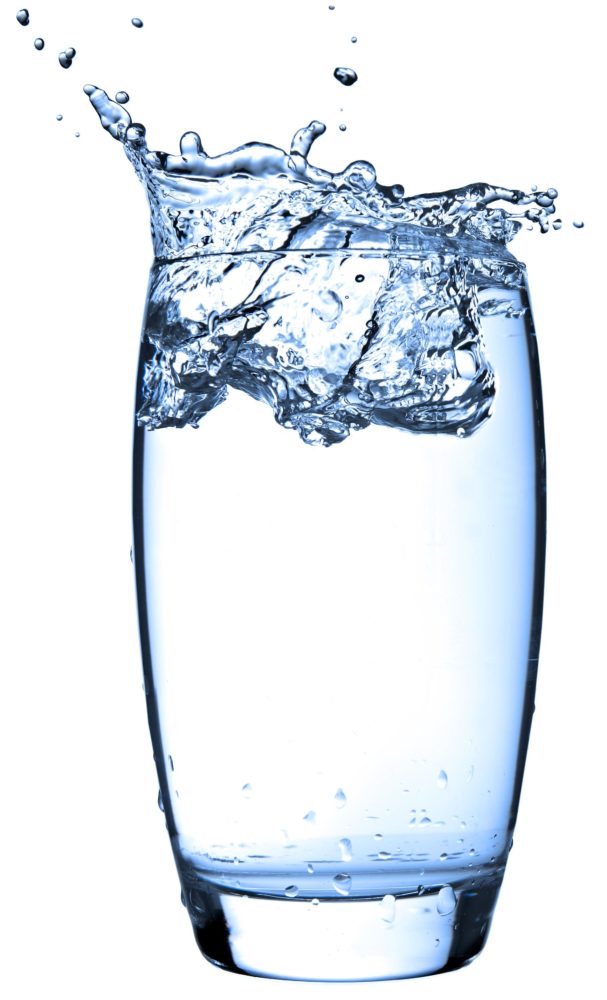So many of my clients find shifting off sugar a real challenge. There are many reasons, not the least of which is gobs of marketing “treats” and having fun with beautiful people drinking cola or even sugar-free cola “lite”.
Too many of us make the mistake of thinking that artificially sweetened products are a healthier option because they cut out sugary calories and don’t raise blood sugar. While true, artificial sweeteners may be just as much a problem for other reasons.
They make you want your sweets even more; and they add to your chemical load. Can this be good?
Again and again, research shows no-calorie sweeteners cause the same problems as excess sugar, and then some. From cyclamate in the 1960’s to saccharin (Sweet & Low) which reigned supreme for decades, only to be upstaged by aspartame (Nutrasweet, Equal) in the mid-70’s and, more recently, sucralose; our search for sweet without the calories is making us fatter and poisoning us in other ways.
If you are having a hard time changing your taste buds, definitely read this. It’s not you. Perhaps this will help.
Artificial sweeteners again linked to obesity and diabetes
Unintended consequences of consuming artificial sweeteners don’t stop with weight gain. Add to the list of problems increased risk of cardiovascular disease, diabetes mellitus type 2, hypertension and metabolic syndrome—all vigorously disputed, of course. Nutrition science is hard to do. Since most of it is done by food and chemical companies, it is rife with conflicting interests. “Nutrition science” an oxymoron? Only when it is mis-interpreted to serve an agenda.
But in this, an ever-growing number of studies show artificial sweeteners raise your risk of both obesity and Type 2 diabetes—what we don’t know is whether no-calorie sweeteners make you fatter than sugar does.
Don’t take my word for it. Here are the studies and conclusions in the research teams own words:
| Preventive Medicine 1986
Weight change in 78,694 women ages 50-69 tracked one year. Artificial sweetener “users were significantly more likely than nonusers to gain weight, regardless of initial weight… The results could not be explained “by differences in food consumption patterns. The data do not support the hypothesis that long-term artificial sweetener use either helps weight loss or prevents weight gain.” |
| San Antonio Heart Study 2005
“We have examined the relationship between artificially sweetened beverage (ASB) consumption and long-term weight gain… 8 years, 3,682 participants. “Change in BMI was 47% greater among artificial sweetener (AS) users than nonusers… [we] question whether AS use might be fueling–rather than fighting–our escalating obesity epidemic.” |
| American Diabetes Association 2009
“Consumption of diet soda at least daily was associated with significantly greater risks of select incident metabolic syndrome components and type 2 diabetes.” |
| American Journal of Clinical Nutrition 2013
Of 66,118 women followed for nearly 20 years, the risk of developing Type 2 Diabetes Melitus increased with greater consumption of both sugar-sweetened and artificially-sweetened beverages. “Compared with nonconsumers, women in the highest quartiles of [sugar-sweetened] and [artificially-sweetened] consumers were at increased risk of T2D… when consuming >359 ml/week [about 1.5 cups per week].” and more than doubled at >603 mL/week [under 3 cups per week] |
| The FASEB Journal 2017
“To combat high sugar diets that contribute to diabetes and subsequent hyperglycemia, non-caloric artificial sweeteners have become one of the most utilized food additives worldwide due to their consideration as a low caloric substitute. However, supporting scientific data as to the safety of these non-caloric artificial sweeteners is limited and controversial.” |
What’s happening?
Artificial sweeteners could help people loose weight if those people consumed fewer calories than they use each day. Do they? Part of that depends on whether you feel satisfied with what you eat.
If you don’t feel satisfied, the body’s natural response is what you’d expect: eat again.
| American Journal of Clinical Nutrition 2005
“Glucose and maltodextrin ingestions resulted in similar increases in blood glucose and insulin concentrations while aspartame did not trigger any insulin response. Glucose ingestion resulted in a prolonged and significant signal decrease in the upper hypothalamus. Water, aspartame, and maltodextrin had no such effect. “Both sweet taste and energy content are required for a hypothalamic response. The combination of sweet taste and energy content could be crucial in triggering adaptive responses to sweetened beverages.” |
| Physiology & Behavior 2004
59 children and 46 young adults who had no difference in taste preferences] “…they received, each day, either an orangeade with a sweet taste, a sour taste, or no orangeade (control). After an 8-day exposure to the sweet orangeade, children’s preferences for this orangeade significantly increased where the preference for sweet remained unchanged in the other groups.” |
| Cell Metabolism 2016
“Chronic [sucralose consumption] promoted hyperactivity, insomnia, glucose intolerance, enhanced sweet taste perception, and a sustained increase in food and calories consumed, effects that are reversed upon sucralose removal. “Chronic sweet/energy imbalance promoted increased food intake in mammals as well… this occurs through a [starvation sensing] mechanism. Together, our data show that chronic consumption of a sweet/energy imbalanced diet triggers a conserved neuronal fasting response and increases the motivation to eat.” |
“Sweet” causes cravings, and it’s addictive
It’s not just a matter of taste, although people who routinely use artificial sweeteners or sugar start to find less intensely sweet foods, even fruit, less appealing. Forget unsweet foods. Train your taste buds to love “sweet” in any form and you’ll find vegetables downright unpalatable.
Caloric or non-caloric, sweeteners can make you shun healthy, filling, and highly nutritious foods while consuming more artificially flavored foods with less nutritional value. And… the no-calorie versions can play another trick: If we know we haven’t had calories, will we now allow ourseves that extra desert or ice cream?
| PLOS One 2007 “When rats were allowed to choose mutually-exclusively between water sweetened with saccharin-an intense calorie-free sweetener-and intravenous cocaine-a highly addictive and harmful substance-the large majority of animals (94%) preferred the sweet taste of saccharin.“…the same preference was also observed with sucrose, a natural sugar.“The supranormal stimulation of these receptors by sugar-rich diets, such as those now widely available in modern societies, would generate a supranormal reward signal in the brain, with the potential to override self-control mechanisms and thus to lead to addiction.” |
What do you consider “safe”?
Both sugar and artificial sweeteners inflame blood vessels and launch a cascade of events leading to heart disease—they just do it differently:
| PLOS One 2014 Although in mice… Both sucrose-sweetened and aspartame-ascesulfame K-sweetened “lite” “Cola drinking within the 8-16 weeks of age accelerated atherosclerosis progression favoring aortic plaque enlargement… Data suggest that cola drinking at early life stages may predispose to atherosclerosis progression later in life.” |
| The FASEB Journal 2018 “This study tested the response of the vascular endothelium in vitro and the in vivo response of a diabetes susceptible … rat model to glucose, aspartame, and acesulfame potassium supplementation … Through this set of experiments we have identified alterations in lipid metabolism, among others, following artificial sweetener consumption.Overall, results of this study suggest that exposure to high glucose and artificial sweetener administration lead to unique mechanisms of vascular impairment and homeostatic alterations that may be important during the onset and progression of diabetes and obesity.” |
Artificial sweeteners destroy your gut microbiome; this can lead to obesity and insulin resistance
| Journal of Toxicology and Environmental Health 2008 “At Splenda dosages that contained sucralose at 1.1-11 mg/kg (the US FDA Acceptable Daily Intake for sucralose is 5 mg/kg), evidence indicates that a 12-week administration of Splenda exerted numerous adverse effects, including (1) reduction in beneficial fecal microflora, (2) increased fecal pH, and (3) enhanced expression levels of detoxification enzymes.” |
| Nature 2014 “Artificial sweeteners (NAS) are among the most widely used food additives worldwide, regularly consumed by lean and obese individuals alike… We demonstrate that consumption of commonly used NAS formulations drives the development of glucose intolerance through induction of compositional and functional alterations to the intestinal microbiota.“Collectively, our results link NAS consumption, dysbiosis and metabolic abnormalities, thereby calling for a reassessment of massive NAS usage.” |
| PLOS One 2017 “Numerous studies have indicated an important role of the gut microbiome in body weight control and glucose metabolism and regulation. Interestingly, the artificial sweetener saccharin could alter gut microbiota and induce glucose intolerance, raising questions about the contribution of artificial sweeteners to the global epidemic of obesity and diabetes.“Our results may provide a novel understanding of the interaction between artificial sweeteners and the gut microbiome, as well as the potential role of this interaction in the development of obesity and the associated chronic inflammation.” |
I’ve probably said enough so I’ll skip the many hundreds of papers describing the unwanted health effects of artificial sweeteners. Everything from nervous system dysfunction to intestinal damage to migraines to fatty liver to pre-term delivery and more…
When you are trying to do the right thing, artificial sweeteners can stimulate your appetite, increase cravings for other sweets, stimulate fat storage and promote weight gain just like regular soda (at amounts less than one per day!)
For optimal health, drink more clean water
Ditching soda and sweetened beverages is one of the most important steps you can take to improve your weight and health; this includes artificially sweetened beverages which may be worse for your health than regular soda.
Remember, pure water is a zero-calorie drink. It does need to be clean (skip the cost and waste of bottled water with these solutions) If you want some flavor, squeeze a little bit of fresh lemon or lime in, or add a mint sprig, or a few slices of cucumber…
Now that’s refreshing!



Leave a Reply
You must be logged in to post a comment.